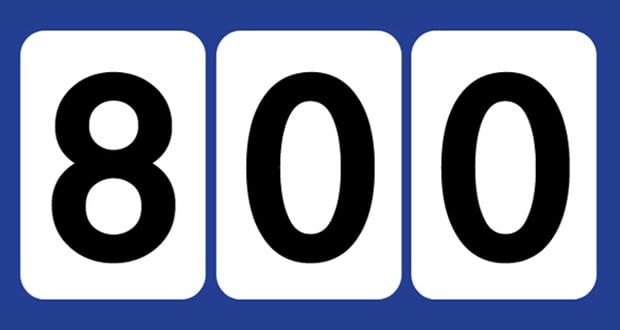Last-Minute Digital SAT Prep: Maximizing Your Study Time
Author
Phoenix Wilder
Date Published

How much time remains until your digital SAT exam day? If the answer is less than two months and you're aiming for a competitive score, you should already be preparing. However, life happens—whether you completely forgot about the test or procrastinated until the deadline snuck up on you, it’s not too late to make meaningful progress. These last-minute SAT strategies are designed to help you make the best use of your time, whether you have two months left, two weeks, or even just a few days. Read on to discover actionable ways to close in on your target score.
How Long Should You Study for the Digital SAT?
The amount of preparation time needed for the digital SAT depends on how high you want to score. As with any standardized test, consistent study over a longer period typically yields better results. Ideally, preparing well in advance builds both knowledge and confidence. For students striving for their best score, studying regularly from now until test day is key.
On average, students can expect to improve their SAT score by approximately 40 points for every 7 hours of focused studying. This estimate is based on the time it typically takes to analyze a practice question, relearn its underlying concept, and internalize the material. For instance:
Allocating 16 hours for SAT prep might yield an 80 to 100-point increase.
A more significant 40-hour study plan can result in a gain of up to 250 points.
Typically, these study hours are spread out over several months. Many students begin preparing by hiring tutors or enrolling in SAT prep courses five months before the test. Research supports the idea that spacing out study sessions—known as the “spacing effect”—improves information retention. On the other hand, attempting to cram 40 hours of preparation into just a few weeks is not only impractical but also less effective compared to the benefits of consistent, long-term practice.
Strategies for Shorter Timelines
If the SAT is approaching quickly and you don’t have the luxury of months to prepare, don’t despair. It’s still possible to make significant improvements by optimizing your remaining time. The goal should not be to force countless hours into your schedule; instead, aim to maximize efficiency. Even limited study time can set you up to achieve the best score you’re capable of.
Here’s a high-level approach for short-term preparation:
Aim to dedicate at least an hour each evening after school and allocate 5–6 additional hours over the weekend. This schedule can result in a 60-point improvement—or more—over a few weeks.
Adjust your weekly preparation time based on your own commitments and workload. While life may not allow for 10–12 hours of studying every week, consistently dedicating at least 3–5 hours per week can still lead to steady progress.
Begin with a diagnostic practice test. Not only will this provide a baseline score, but it will also help familiarize you with the structure and style of the SAT. Additionally, it identifies your weak areas so you can develop a targeted study plan.
No matter how much time you have left before the test, taking a practice test is your first and most essential step. Make sure to prioritize digital SAT practice tests since the test format has recently changed.
Study Plans for Different Timeframes
2-Month SAT Study Plan
With two months available, there’s ample opportunity for significant improvement. Committing to at least 5 study hours per week—or a total of 40 hours—could yield a score improvement of around 200–250 points. Here’s how your schedule might look:
Study 1 hour after school each weekday and devote 2.5 hours each day during weekends.
Alternatively, mix shorter increments during weekdays with longer weekend study sessions.
If you can’t manage 5 hours per week, even setting aside 2–3 hours weekly can result in a meaningful increase, potentially boosting your score by 90–120 points.
After completing your initial diagnostic test:
Review missed questions. Focus on understanding errors, identifying weak areas, and relearning the foundational concepts.
Take a second full-length practice test after a few weeks of focused study. Use this to gauge improvement and fine-tune your preparation by targeting remaining weak points.
1-Month SAT Study Plan
With one month left, a targeted study plan based on strengths and weaknesses is crucial. Dedicate time to areas where your score needs the most improvement. Steps to follow:
Begin by taking a diagnostic test and identifying specific content areas to focus on.
Pick a strategy based on your time availability:
If you don’t have enough time for another full practice test, focus on practice questions targeting your weakest areas.
If you have two weeks or more, take a second practice test and review your mistakes thoroughly.
Integrate content review with focused practice:
Use online courses or digital SAT prep books to reinforce skills in the areas identified as weaknesses.
Supplement learning with additional practice questions and topic-specific drills.
2-Week SAT Study Plan
With only two weeks remaining, you’ll need to prioritize and streamline your preparation. Here’s a short-term strategy:
Focus on targeted practice. Review a single full-length practice test and spend the remaining time honing your weakest skills using drills.
Supplement your review with additional materials, such as vocabulary lists, SAT math formula sheets, or passages resembling those on the Reading and Writing section.
Incorporate broader strategies like developing time-management skills, familiarizing yourself with the digital testing tools, and practicing active reading.
1-Week SAT Study Plan
In the final week before the exam:
Dedicate time to reviewing your most common mistakes from practice tests. Prioritize concepts or question types that you consistently miss.
Avoid overwhelming yourself with entirely new material. Instead, focus on reinforcing your existing knowledge and shoring up any gaps in key concepts you’ve already studied.
Go over basic test-taking strategies, such as pacing, process of elimination, and guessing when unsure.
3 Days or Less
With just a few days left, you’re unlikely to make substantial content gains, but it’s still possible to improve your preparedness:
Take a digital SAT practice test to simulate the testing environment.
Use the results from your practice test to create a game plan for test day:
Prioritize questions and topics you feel confident about to boost accuracy.
Develop strategies to manage difficult or time-consuming problems.
Get plenty of sleep, avoid last-minute cramming, and approach the test calm and well-rested.
Key Test-Taking Strategies
Regardless of your preparation timeline, applying effective test-taking strategies on exam day will help improve your performance:
1. Start with easier questions. Focus on securing points on questions you can confidently answer before tackling harder ones.
2. Answer all questions. The SAT does not penalize for incorrect answers, so make educated guesses or use process of elimination if unsure.
3. Review key math formulas. Ensure you know how and when to apply them since they’re vital for the test.
4. Read actively. Use tools available on the SAT’s Bluebook app, such as the line reader or annotation feature, to stay engaged during the Reading and Writing section.
Make the Most of Your Preparation
Even if you’re short on time, strategic preparation can help ensure you walk into the SAT feeling better prepared. While it’s ideal to have months to study for the exam, any amount of focused effort helps. And remember—if your score is lower than desired, you always have the opportunity to retake the SAT and continue improving with future attempts.
Bestsatscore is here to support you in achieving your goals. Whether it’s personalized SAT preparation, digital practice platforms, or strategic advice, know that every effort you make brings you one step closer to success.
Related Posts

Discover proven strategies to score a perfect 800 on the SAT Reading and Writing sections. Learn essential skills and tips for test day success.

Unlock the secret to scoring a perfect 800 on SAT Math! Learn expert strategies and test-taking tips to maximize your score and boost your confidence.